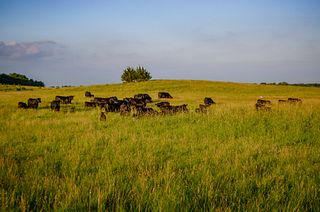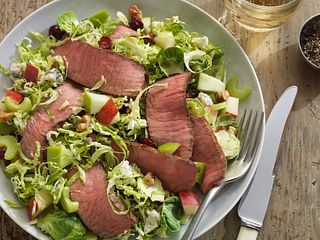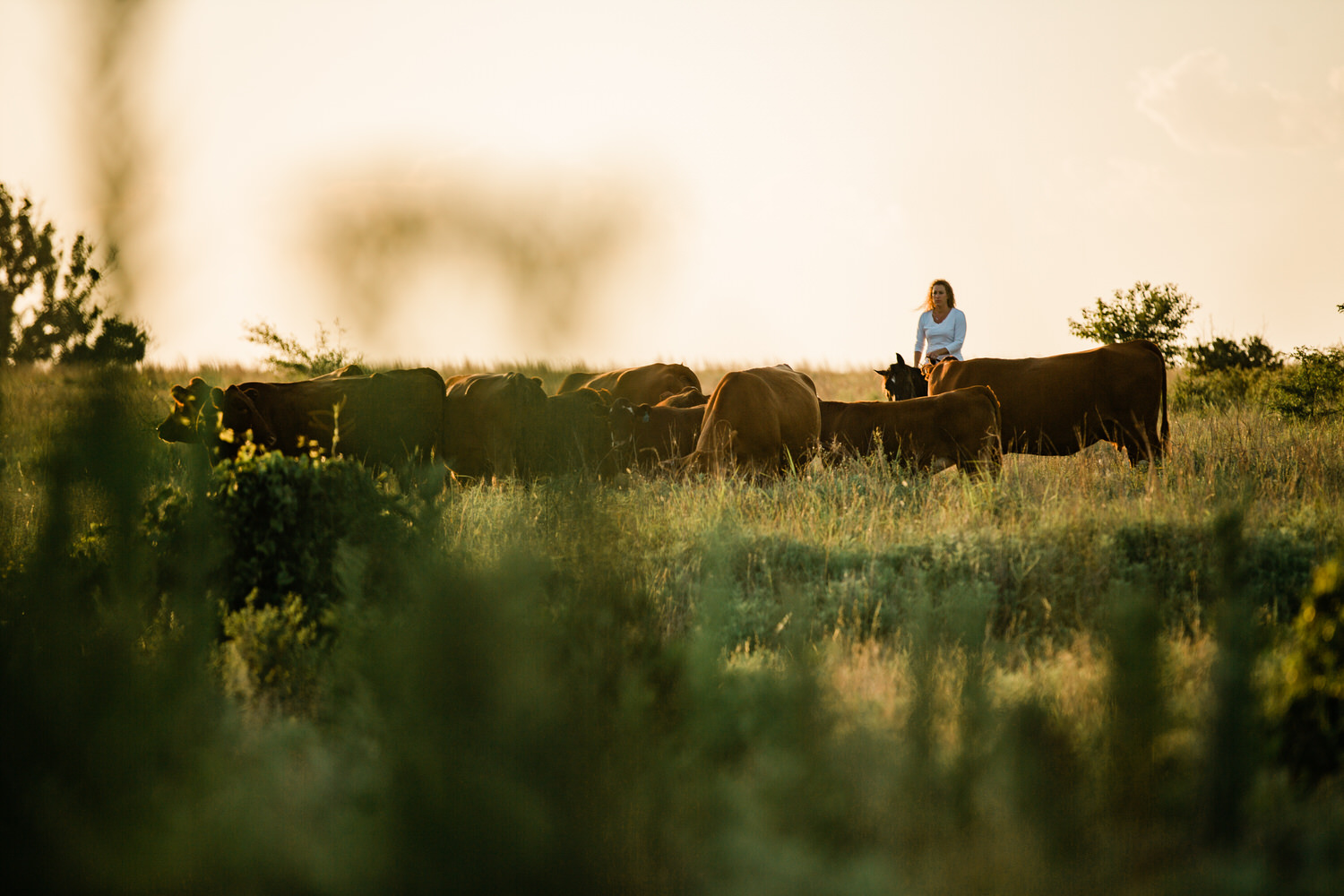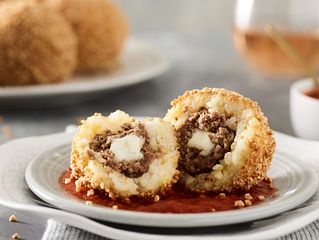Beef Sustainability
Raising beef is a complex process, but throughout the entire journey, one thing remains constant – the shared commitment to raising cattle in a safe, humane and environmentally sustainable way by using the latest technology and resources. Currently, more than 700,000 cattle farms and ranches in the United States, with an average herd size of 40 cattle, produce 19 percent of the world's beef. Learn more about the people and the process involved in raising beef from the pasture to the plate.
BEEF SUSTAINABILITY: ENVIRONMENTAL, SOCIAL & ECONOMIC IMPACT
To the beef community, sustainability involves more than environmental considerations. A sustainable food supply balances efficient production with environmental, social and economic impacts with Beef Quality Assurance protocols.
Beef Farmers and Ranchers-Caring for the Environment
Today beef is produced using fewer resources than ever before. But conservation is never complete; ranchers work hard to feed a growing population, while, at the same time, reduce water use, care for the land, and protect the environment.
Exploring the path of beef sustainability
The "Exploring the Path of Beef Sustainability" Readers, provided free of charge to Oklahoma educators, offer an exciting opportunity for students to uncover the connections between beef production and sustainability. Meeting Next Generation Science Standards, educators can access a reader for each student, inviting them to explore the environmental impact of cattle farming and sustainability. Each reader includes a teacher guide and supplementary teaching resources to enhance the learning experience. The series encompasses three readers for grade levels 6-8 and 9-12. These readers are easily accessible for printing and use by anyone.

Cattle and the Biogenic Cycle
Cattle are often thought to contribute to climate change because they belch methane (CH4), a greenhouse gas. While this is true, cattle do belch methane, it is actually part of an important natural cycle, known as the biogenic carbon cycle.
Beef in a sustainable diet

The beef community has a long-standing commitment to caring for their animals and providing families with the safest, highest-quality beef possible. The Beef Quality Assurance (BQA) program trains farmers and ranchers on best practice cattle management techniques to ensure their animals and the environment are cared for everyday.
Frequently Asked Questions about Beef in a Healthy, sustainable Diet
We all know beef tastes great – but did you know that it can be sustainable too? Check out some answers to your most pressing questions when it comes to beef’s role in a healthy, sustainable diet.
Beef and Meat Substitutes
People have always had a variety of different food and protein options to choose from, and today, that’s no different. What sets beef apart is that it’s a high-quality protein that is authentic, real and raised responsibly. Today, farmers and ranchers are raising more delicious beef more sustainably than ever before.
Beef Quality Assurance-Raising the Bar on Raising Cattle
The beef community has a long-standing commitment to caring for their animals and providing families with the safest, highest-quality beef possible. Beef Quality Assurance (BQA) is a program that trains farmers and ranchers on best practice cattle management techniques to ensure their animals are cared for within a standard set of guidelines.
The Superpower of Cows-Upcycling
While cows lack the ability to fly at the speed of sound, shape shift, or teleport, their superpowers are equally as impressive: cows up cycle plant-based food production leftovers into high-quality protein.
RAnching and Conservation
A partnership with the Nature Conservancy demonstrates how ranching and conservation go hand in hand for these Oklahoma ranchers
REgenerative Agriculture
Regenerative agriculture sounds innovative, right? Beef Farmers and Ranchers have been practicing it for generations.
Ranching and Monarch Butterflies
Learn how Oklahoma rancher, Katie Blunk ranches while preserving and enhancing critical native pollinator habitat to help save the monarchs!


